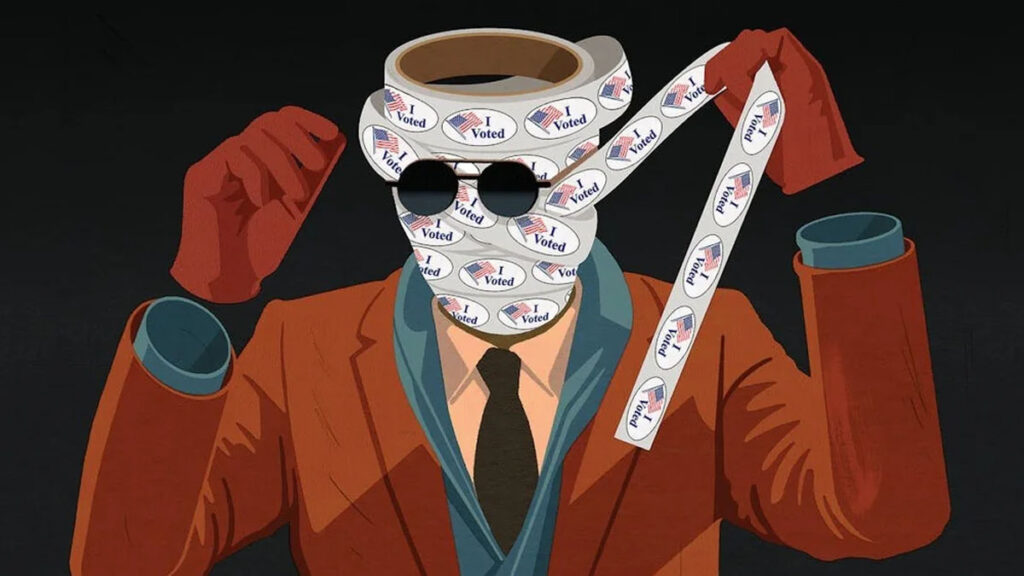The common impression is that being an “Independent” voter is a good thing. Most folks believe that the designation suggests objectivity and independence from partisanship. I have long believed that neither attribute is correct.
Because of the “image,” a plurality of registered voters are independents. According to Pew Research, Independents currently represent 35 percent of the electorate. Democrats are 33 percent and Republicans 32 percent.
I have long contended that we are mistaken to think of Independent voters as objective or “undecided.” Au Contraire. Rather, Independents are largely partisan Democrats and committed Republicans who prefer to call themselves Independents. I base my belief on more than 50 years of experience in analyzing polls and election results – and specific experience with voters.
Consider some of the more prominent personalities who claim to be Independent – Bernie Sanders, Angus King, Joe Scarborough to name a few. It is almost impossible to find one who is not aligned to one of the two major parties – and will vote accordingly
Pew Research has now given my theory significant credibility. They report that Independent partisan “leaners” – as they call them — divide along the same fault line as those registered by party affiliation. When the leaners are added to the those registered by party affiliation, we find that 48 percent of total voters are Democrat — and 48 percent are Republican voters. That leaves only 4 percent who might be considered “undecided.”
In other words, we have Democrats and Republican voters who – for one reason or another – do not register according to their party preference. But they have a decided preference. That is why analyzing polls simply as the percentage of Republicans, Democrats and Independents is meaningless. There may be a very small undecideds in an election cycle, but most Independents will be found in their camp.
When we put partisan Independents into the column in which they belong we get a more accurate sense of voting reality. We can see how evenly divided America is today.
If we look at the Pew polling trend line, Republicans gained since the 2020 presidential election – when Democrats were 51 percent of the voters – registered and Independent leaners – and Republicans were 46 percent. That means only 3 percent could be considered to have been undecided in 2020.
The problem is a popular confusion between the meaning of “Independent” and “undecided.” No matter what they call themselves – or even claim they are undecided – history and statistics suggest that 96 percent of the 2024 vote is already baked in – and already being cast in the earliest of the early voting states.
Of course, not all registered Republicans will vote Republican, just as all registered Democrats will vote Democrat. That is a different issue, different polling and different analysis.
While declaring oneself as an Independent has a certain snobby appeal, I see them as one of the problems in our electoral process – just as much as the non-voter. The problem is not found as much in the general elections as in the primaries. Independent voters do not participate in most primary elections – leaving the choice of candidates to a smaller number of declared partisans.
It is a very small percentage of registered voters – and even a smaller percentage of eligible voters – who pick the candidates for the general elections. This also means that the dogmatic and fringe voters on both sides have a disproportionate influence in picking the candidates.
When it was a Biden/Trump contest, up to 70 percent of voters said they did not like either candidate. So, how did they win their primaries? Simple. The hardcore base of the two parties picked them. The larger number of eligible and independent voters – a majority, in fact — were not involved in that process. They took a pass on picking the candidates.
While Independent voters are NOT as independent as we are led to believe, their absence from the primaries does have a negative impact on the elections. The same as those who waste votes on third party candidates or simply do not vote. America is by tradition and legal structure a two party political nation. If you do not join one side or the other, you are out of the game … period.
So, there ‘tis.
